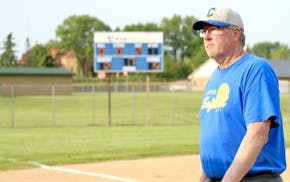The City Council in Savage is nearing a touchy decision on what to do about a proposal for a housing project that critics say could harm the city's most prized natural asset, the delicate wetland known as the Savage Fen.
Neighbors, represented by a University of Minnesota law professor specializing in environmental law, are pointing to what they are calling "a lot of serious questions" from outside experts. In a new twist, that includes the possibility of American Indian burial mounds.
But a consulting firm hired by the city is reassuring officials that in its opinion, "the proposed residential development does not have the potential for significant environmental effects."
Awkwardly, the man behind the proposal is the mayor's brother.
The council could signal as soon as Monday which way it now is leaning on whether to launch a full-scale environmental review. But even if the council declines to do that, the question could end up in the hands of a judge.
A lawsuit filed by neighbors last fall is effectively on hold until the city decides what to do.
"Other cities in the metro area are making an effort to preserve properties like this one," said Alexandra Klass, the law professor who represents the neighbors. "I wish we could see that with Savage."
The dispute centers on a project called Dan Patch Trail, which eventually would bring more than 200 homes, in three phases, into a piece of open space not far from the main body of the fen. The fen is south of Hwy. 13, on the city's north end.
The landowner is Karl Bohn, brother of Mayor Janet Williams and a substantial landowner in the city.
After the City Council declined last year to order a full environmental review, neighbors -- organized as the Woods & Wetlands Alliance -- brought the suit to try to force one. That threw enough uncertainty over the project that Bohn, hoping to hasten things along, undertook his own environmental assessment.
That, in turn, went out this winter for formal review by a number of agencies, including the Minnesota Department of Natural Resources.
Many comments came back. But the ones that the city's consultants, Maple Plain-based Wenck Associates, singled out as most important were those that sought updated surveys of plant life on the site and archeological surveys.
Stanley Crooks, for instance, chairman of the Shakopee Mdewakanton Sioux Community, asserted that the project area "contains sites of cultural significance" and must be thoroughly evaluated.
And the state's Historic Preservation Office said more work needs to be done to check out what sort of historic sites might be present.
For the most part, however, the city's consultants concluded that whatever environmental hazards were possible could be dealt with in the proper engineering of the site, including the routing of storm water away from the fen.
Klass is not so sure.
"There are so many serious issues involved with this property," she said. "There are clearly storm water issues, we aren't sure what's going on with wetlands, and there could be Indian burial mounds. The problem is, [short of an all-out environmental impact statement], we don't know for sure."
Stan Ellison, manager of land and natural resources for the Shakopee Mdewakanton Sioux, said that Klass once represented the tribe in her previous role as attorney for the blue-chip downtown law firm Dorsey & Whitney and drew the tribe's experts into the matter.
"We didn't want to enter private land to check it out," he said, "but there was once a [Native American] village right in the middle of that area, and it is very likely, based on maps and history, that there are mounds in those woods. They may not be important ones, but no one has checked."
Bryan Tucker, the city's planning manager, said the council will need to sort through all issues.
Monday's meeting, he said, "will not officially be a 'public hearing,' but we will take some public input on the findings, and the consultant will be there to answer questions."
Once that has happened, he expects council members to signal what sort of findings they want drawn up.
"It's not easy," he said of a process in which citizen council members must evaluate the conflicting opinions of scientific experts. "The goal for us in looking at it was, 'Is there anything truly unique here?'"
David Peterson • 952-882-9023
Brooklyn Park City Council member censured for 2nd time

This St. Paul native now goes by Kandi Krush, and she body-slams her opponents in the ring
Man agrees to 6-year sentence for fatally shooting Hopkins man on edge of downtown Minneapolis

